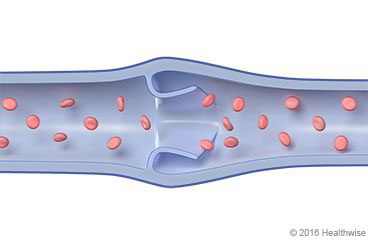
What is a blood transfusion?
A blood transfusion is a medical treatment that supplies blood the body needs. The blood goes from a syringe to a tube that is placed in a vein.
A baby may need a blood transfusion for any of several reasons. There may have been bleeding before delivery. Maybe the baby has an infection. Premature babies may have a lack of red blood cells (anemia) because they're not yet ready to make their own. Full-term babies don't start making their own blood cells for 1 to 3 months.
The blood for the transfusion comes from a donor blood bank, just like the blood given to adults. It's natural for you or other family members to want to donate your own blood to help your baby. But blood from a blood bank is already available and carefully tested for safety. Having your own blood tested, typed, and processed takes too long for it to be used for your baby.
Your baby may need special care, such as being in the neonatal intensive care unit (NICU). This may be scary for you. But the hospital staff understands this. They will explain what happens and will answer your questions.
How is it done?
The blood transfusion is done very carefully. The hospital staff follows strict rules to make sure that the donor blood is a good match with your baby's blood. They will make sure that your baby is kept safe.
First, your baby's blood is tested for its type (A, B, AB, or O, and Rh-negative or Rh-positive). The donor blood is tested to make sure it will mix safely with your baby's blood.
Your baby's blood is also screened to look for antibodies that might react with the blood that is given to your baby. Donor blood is checked again to make sure that it's the right blood for your baby.
Next, a thin, soft tube (catheter) is inserted into your baby's vein. The vein may be in the arm, leg, scalp, or belly button. The catheter is then attached to a tube that connects to a syringe that contains donated blood. The blood is pumped slowly into your baby's vein. Since your newborn is small, the amount of blood given is also small—normally only a few tablespoons. The nurse will carefully watch your baby during the transfusion.
What can you expect?
- Blood transfusions pose a few risks, but they also offer many benefits and can be life-saving. The hospital staff is well aware of the risks. They are watching your baby closely for any problems.
- You may see tubes and wires attached to your baby. This can be scary to see. But these things help the doctor treat your baby. The tubes supply air, fluid, and medicines to your baby. The wires are attached to machines that help the doctor keep track of your baby's vital signs. These include temperature, blood pressure, breathing rate, and pulse rate.
- Your baby will be kept comfortable and warm.
- It may seem that your baby is getting lots of tests. All of these tests help your doctor keep track of your baby's condition and give the best treatment possible.
- It's hard to be apart from your baby, especially when you worry about your baby's condition. Know that the hospital staff is well prepared to care for babies with this condition. They will do everything they can to help. If you need it, ask for support from friends and family. You can also ask the hospital staff about counseling and support.
Where can you learn more?
Go to http://www.healthwise.net/patientEd
Enter Q168 in the search box to learn more about "Learning About Blood Transfusions for Newborns".
Current as of: October 7, 2024
Author: Ignite Healthwise, LLC Staff
Clinical Review Board
All Ignite Healthwise, LLC education is reviewed by a team that includes physicians, nurses, advanced practitioners, registered dieticians, and other healthcare professionals.

